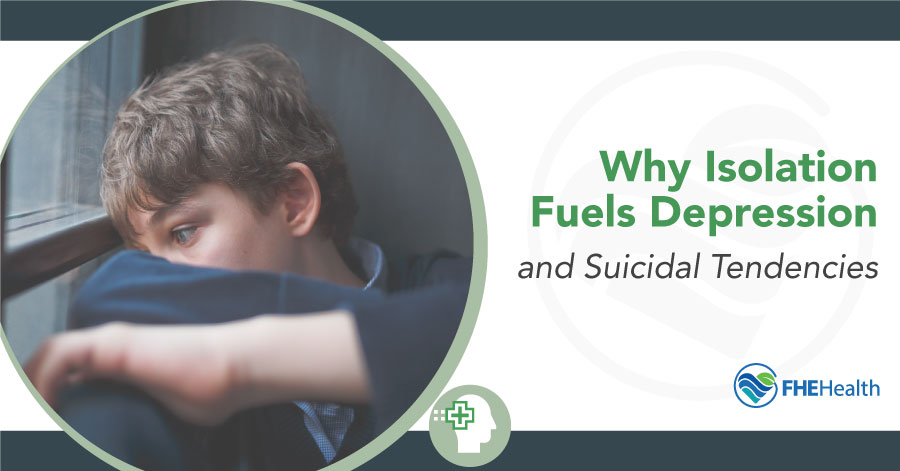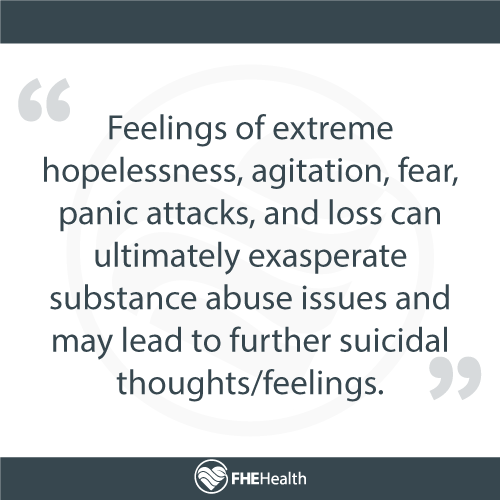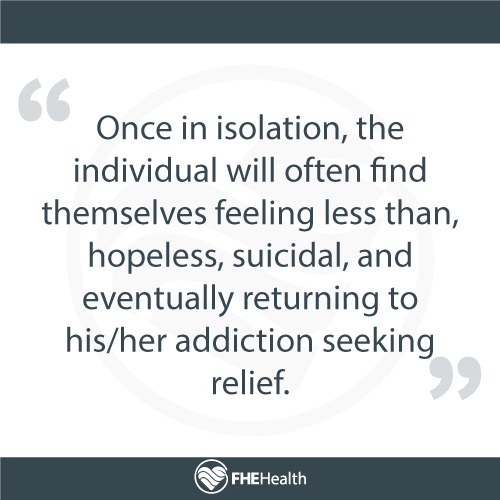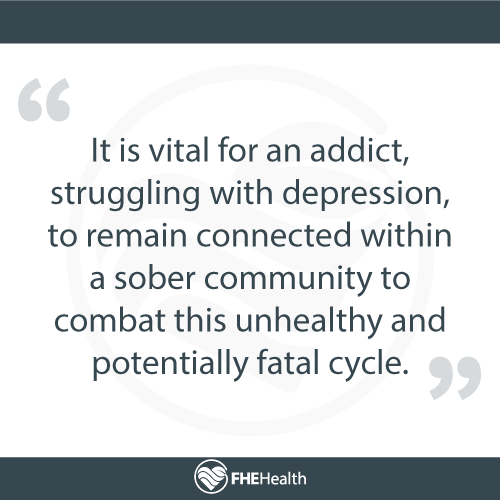
Many people know someone who has struggled with drug or alcohol addiction, but many individuals may find it difficult to understand why addictions occur. Although there are several reasons why someone may be struggling with substance abuse, one primary cause of addiction is depression. Addicts who may be struggling with depression can benefit from the skills learned in a dual diagnosis treatment center. When we make the connection between substance abuse and depression, we can help ourselves or someone else who may be struggling with these co-occurring disorders.
Addiction and Depression
Countless studies have shown the connection between depression and substance abuse. Both disorders are considered to be highly comorbid – in other words, both often go hand-in-hand in a large portion of affected individuals. Many addicts, struggling with depression, self-medicate with drugs and alcohol to mitigate the symptoms. However, the relief is often temporary and generally exacerbates the symptoms of depression.
There are common underlying factors that increase the presence of depression and addiction in an individual’s life. Environmental factors such as where a person resides or the people that he/she surrounds themselves with may have a significant impact on an individual struggling with depression or substance abuse disorder. Another factor may be the presence of a chemical imbalance within the brain and even the science of genetics.
Impact of Isolation
 Isolation is prevalent in active addiction as well as someone who is struggling with the symptoms of depression. Many of us turn to substances because we are lonely and feel as though we cannot relate to others. As the disease of addiction progresses, and depression worsens, most individuals find it even harder connecting and interacting with other people. Further propelling isolation and loneliness, the compulsion to use other substances to self-medicate will continue to inflame the symptoms of substance abuse disorder as well as depression.
Isolation is prevalent in active addiction as well as someone who is struggling with the symptoms of depression. Many of us turn to substances because we are lonely and feel as though we cannot relate to others. As the disease of addiction progresses, and depression worsens, most individuals find it even harder connecting and interacting with other people. Further propelling isolation and loneliness, the compulsion to use other substances to self-medicate will continue to inflame the symptoms of substance abuse disorder as well as depression.
It is not uncommon for this vicious cycle to lead to further complications within the co-occurring disorders. As the addiction worsens, so do the symptoms of depression. The individual may find themselves struggling with suicidal ideations as they continue to isolate from potential help and healing. When an individual is clinically depressed, naturally, there is an urge to withdraw socially and shut down-which ultimately turns out to be the exact opposite of what the individual needs. Isolation will generally worsen the illness and how the individual may feel as social withdrawal amplifies the brain’s stress response.
Feelings of extreme hopelessness, agitation, fear, panic attacks, and loss can ultimately exasperate substance abuse issues and may lead to further suicidal thoughts/feelings. Studies have shown that 90% of victims of suicide also struggle with an underlying mental health disorder such as depression. Individuals need to receive the proper diagnosis and treatment for all possible mental health disorders along with receiving treatment for his/her addiction.
Isolation and Relapse
 The pull of isolation is a significant reason why many newly sober addicts fall into experiencing a potential relapse. An individual will often compare their experiences to the experiences of others and begin to separate themselves from other members of the recovery community. Once this idea has started to convince the individual that he/she is not a part of, the urge to be alone may become overwhelming. Once in isolation, the individual will often find themselves feeling less than, hopeless, suicidal, and eventually returning to his/her addiction seeking relief.
The pull of isolation is a significant reason why many newly sober addicts fall into experiencing a potential relapse. An individual will often compare their experiences to the experiences of others and begin to separate themselves from other members of the recovery community. Once this idea has started to convince the individual that he/she is not a part of, the urge to be alone may become overwhelming. Once in isolation, the individual will often find themselves feeling less than, hopeless, suicidal, and eventually returning to his/her addiction seeking relief.
These co-occurring disorders are cunning, baffling, and powerful in nature. The lack of connection to others will often lead an individual into returning to old, unhealthy thought patterns, emotions, and behaviors. After all, it has been said before, “My best thinking landed me into complete hopelessness and eventually rehab.” It is vital for an addict, struggling with depression, to remain connected within a sober community to combat this unhealthy and potentially fatal cycle.
Overcoming Isolation
 Suicide, addiction, and depression have a very intertwined relationship. Isolation is fuel added to the fire of this deadly combination. Just as depression and suicidal thoughts are often linked, addiction, isolation, and depression often overlap. The rate of depression is commonly higher amongst addicts than the general population. The relationship between substance abuse and depression is a very complicated cause-and-effect process. To overcome addiction and depression, an individual must also overcome isolation. All issues must be treated simultaneously to achieve, complete, and maintain long-term mental, spiritual, and physical health.
Suicide, addiction, and depression have a very intertwined relationship. Isolation is fuel added to the fire of this deadly combination. Just as depression and suicidal thoughts are often linked, addiction, isolation, and depression often overlap. The rate of depression is commonly higher amongst addicts than the general population. The relationship between substance abuse and depression is a very complicated cause-and-effect process. To overcome addiction and depression, an individual must also overcome isolation. All issues must be treated simultaneously to achieve, complete, and maintain long-term mental, spiritual, and physical health.
Inpatient rehabilitation facilities will encourage individuals to begin the process of reaching out to others and building mutually supportive and positive relationships. Connecting with other individuals who can truly understand and relate to what you may be going through is a significant benefit of seeking treatment and getting connected within a 12-Step Fellowship. These fellowships will cultivate community by requiring you to ask for help from others and connect you with others to help guide you through the process of overcoming addiction, depression, and isolation. Once you begin to get connected within rehabilitation or a 12-Step Fellowship, you must try to identify and relate rather than compare to the experience of others. Recognizing that you are on a journey with many others who are just like you will help give you the strength to seek connection with others while avoiding isolation. There is hope to be found in the process of recovery as you begin to acquire freedom from isolation.






